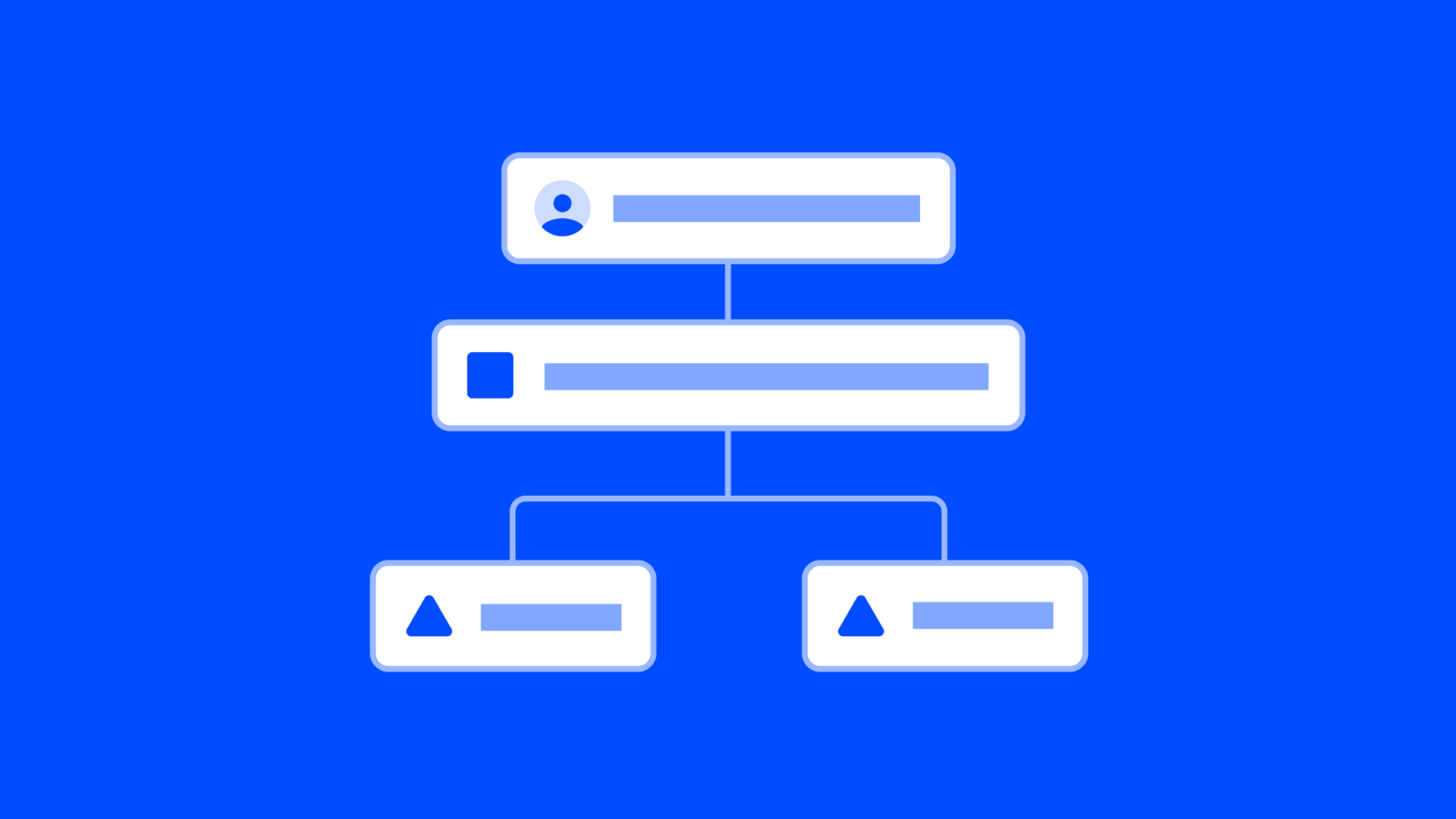Marketo is a powerful marketing automation platform that provides many features and functionalities to streamline and automate your marketing efforts. While it excels in lead management, email marketing, and campaign analytics, it might not always be the perfect fit for every business.
Certain competitors might offer better solutions depending on your business's needs and size, budget constraints, or required features. As a result, exploring Marketo alternatives could lead you to a platform that better suits your unique needs.
Here are five Marketo alternatives, each with its unique advantage:
- ActiveCampaign - Best for small to medium-sized businesses (SMBs)
- Zoho Campaigns - Best for seamless CRM and 3rd-party integrations
- HubSpot - Best for all-in-one marketing, sales, and service platform
- Mailchimp - Best for budget-friendly email marketing
- Keap (Infusionsoft) - Best for customer relationship management (CRM)
ActiveCampaign — Best for small to medium-sized businesses
ActiveCampaign offers several core strengths, making it a great alternative to Marketo for small to medium-sized businesses. Here are the key advantages:
- Robust Marketing Automation: ActiveCampaign provides powerful marketing automation capabilities, allowing businesses to create personalized and automated customer journeys. It offers a visual automation builder that enables businesses to design complex workflows based on user behavior, triggers, and actions. This level of automation helps businesses streamline their marketing efforts, nurture leads, and improve customer engagement.
- Advanced Email Marketing: ActiveCampaign excels in email marketing, offering features like drag-and-drop email builders, dynamic content, and personalized messaging. It provides robust segmentation options, allowing businesses to target specific customer segments with tailored email campaigns. ActiveCampaign's email marketing capabilities help businesses deliver relevant and engaging content, leading to higher open rates, click-through rates, and conversions.
- CRM Integration: ActiveCampaign seamlessly integrates with popular CRM platforms, enabling businesses to consolidate customer data and streamline their sales and marketing efforts. The integration enhances lead management, contact tracking, and sales automation. ActiveCampaign also offers its own CRM so businesses can have everything on one platform.
Now, let's proceed with the table comparing ActiveCampaign to Marketo:
| Category | ActiveCampaign | Marketo |
| Best Feature | Robust marketing automation | Enterprise-level scalability |
| Pros | 1. Powerful marketing automation | 1. Scalable for large enterprises |
| 2. Advanced email marketing | 2. Deep customization and flexibility | |
| 3. Seamless CRM integration | 3. Comprehensive reporting and analytics | |
| Cons | 1. Learning curve for beginners | 1. Higher price point for small businesses |
| 2. Limited enterprise-level features | 2. Steeper learning curve | |
| 3. Advanced features may be overwhelming | 3. Resource-intensive implementation | |
| Entry Price | Starting at $15/month Find pricing details here | Pricing is based on individual needs, but starts around $895/mo |
| Free Trial | Yes | Yes |
Zoho Campaigns — Best for crm and 3rd-party integrations
Zoho Campaigns offers several strengths, making it a great alternative to Marketo for CRM and 3rd-party integrations. Here are the key advantages:
- Seamless CRM Integration: Zoho Campaigns integrates seamlessly with Zoho CRM, enabling businesses to synchronize their customer data, contacts, and campaigns effortlessly. This integration allows for a unified view of customer interactions and enables targeted and personalized email marketing campaigns based on CRM data.
- Extensive 3rd-Party Integrations: Zoho Campaigns offers several integrations with popular third-party applications and services. This allows businesses to connect their email marketing efforts with other essential tools, such as customer support systems, social media platforms, and e-commerce platforms.
- Comprehensive Email Marketing Tools: Zoho Campaigns provides a comprehensive set of email marketing tools, including customizable email templates, A/B testing, advanced analytics, and automation workflows. These features enable businesses to create engaging email campaigns, analyze performance, and optimize marketing strategies.
Now, let's proceed with the table comparing Zoho Campaigns to Marketo:
| Category | Zoho Campaigns | Marketo |
| Best Feature | Seamless CRM integration | Enterprise-level scalability |
| Pros | 1. Strong integration with Zoho CRM | 1. Scalable for large enterprises |
| 2. Extensive third-party integrations | 2. Deep customization and flexibility | |
| 3. Comprehensive email marketing tools | 3. Comprehensive reporting and analytics | |
| Cons | 1. Learning curve for beginners | 1. Higher price point for small businesses |
| 2. Limited enterprise-level features | 2. Steeper learning curve | |
| 3. Advanced features may be overwhelming | 3. Resource-intensive implementation | |
| Entry Price | Limited free plan with a $3/mo upgrade (billed annually) | Pricing is based on individual needs, but starts around $895/mo |
| Free Trial | Yes | Yes |
HubSpot — Best for all-in-one marketing
HubSpot offers several core strengths, making it a great alternative to Marketo for all-in-one marketing. Here are the key advantages:
- Integrated Marketing Platform: HubSpot provides a comprehensive suite of marketing tools that cover various aspects of digital marketing, including CRM, email marketing, social media, content management, analytics, and more. This integrated approach allows businesses to manage their entire marketing strategy and campaigns from a single platform, eliminating the need for multiple disjointed tools and providing a seamless user experience.
- Robust CRM Functionality: HubSpot's CRM is a powerful tool enabling businesses to organize and manage customer data effectively. It offers contact management, deal tracking, lead scoring, and task automation features. Integrating the CRM and other marketing tools ensures a centralized view of customer interactions, facilitating personalized and targeted marketing campaigns.
- Extensive 3rd-Party Integrations: HubSpot offers various integrations with popular third-party applications and services. This allows businesses to connect their marketing efforts with other essential tools, such as e-commerce platforms, customer support systems, and advertising platforms.
Now, let's proceed with the table comparing HubSpot to Marketo:
| Category | HubSpot | Marketo |
| Best Feature | Integrated marketing platform | Advanced enterprise-level capabilities |
| Pros | 1. All-in-one marketing suite | 1. Deep customization and scalability |
| 2. Robust CRM functionality | 2. Advanced reporting and analytics | |
| 3. Extensive third-party integrations | 3. Strong lead management capabilities | |
| Cons | 1. Learning curve for beginners | 1. Higher price point for small businesses |
| 2. Limited customization options | 2. Steeper learning curve | |
| 3. Some advanced features require upgrades | 3. Resource-intensive implementation | |
| Entry Price | Starts from $20/mo | Pricing is based on individual needs, but starts around $895/mo |
| Free Trial | Yes | Yes |
Mailchimp — Best for budget-friendly email marketing
Perhaps the most well-known name on the list, Mailchimp's strengths make it a great alternative to Marketo for budget-friendly email marketing. Here are the key advantages:
- Affordable Pricing: Mailchimp offers flexible pricing plans that cater to businesses of all sizes, including free and low-cost options. This makes it an ideal choice for budget-conscious businesses leveraging email marketing without breaking the bank. The pricing plans are designed to scale with the business's needs, allowing users to upgrade as their email marketing efforts grow.
- User-Friendly Interface: Mailchimp provides a user-friendly and intuitive interface that simplifies the email marketing process. It offers drag-and-drop email builders, pre-designed templates, and customizable options, making it easy for users to create visually appealing and professional email campaigns without coding or design skills.
- Robust Features and Automation: Mailchimp offers many features and automation capabilities despite its budget-friendly nature. Users can create targeted email campaigns, segment their audience, and automate workflows to deliver personalized content. \
Now, let's proceed with the table comparing Mailchimp to Marketo:
| Category | Mailchimp | Marketo |
| Best Feature | Affordable pricing | Advanced enterprise-level capabilities |
| Pros | 1. Flexible pricing plans | 1. Deep customization and scalability |
| 2. User-friendly interface | 2. Advanced reporting and analytics | |
| 3. Robust features and automation | 3. Strong lead management capabilities | |
| Cons | 1. Limited advanced features | 1. Higher price point for small businesses |
| 2. Support limitations | 2. Steeper learning curve | |
| 3. Limited customer support options | 3. Resource-intensive implementation | |
| Entry Price | Limited free plan, $13/mo Essentials plan | Pricing is based on individual needs, but starts around $895/mo |
| Free Trial | Yes | Yes |
Keap — Best for customer relationship management (crm)
Keap offers several core strengths, making it a solid alternative to Marketo for customer relationship management. Here are the key advantages:
- All-in-One Solution: Keap provides a comprehensive all-in-one platform that combines CRM, email marketing, sales automation, and more. This integrated approach allows businesses to manage customer relationships seamlessly and streamline their sales and marketing processes. With Keap, businesses can have a centralized hub for customer data, communications, and sales activities.
- Automation and Personalization: Keap offers powerful automation and personalization features to help businesses engage with their customers in a targeted and personalized manner. Users can create automated workflows, send personalized emails, and track customer interactions, enabling them to deliver tailored experiences and build stronger relationships with their audience.
- Lead Generation and Sales Pipeline Management: Keap excels in lead generation and sales pipeline management. It provides tools for capturing and nurturing leads, managing deals, and tracking sales activities. Businesses can prioritize leads, optimize their sales process, and drive revenue growth by having a clear view of the sales pipeline.
Now, let's proceed with the table comparing Keap to Marketo:
| Category | Keap | Marketo |
| Best Feature | All-in-One Solution | Advanced enterprise-level capabilities |
| Pros | 1. Comprehensive CRM and automation | 1. Deep customization and scalability |
| 2. Powerful automation and personalization | 2. Advanced reporting and analytics | |
| 3. Lead generation and sales pipeline management | 3. Strong lead management capabilities | |
| Cons | 1. Limited advanced marketing features | 1. Higher price point for small businesses |
| 2. Less customization and scalability | 2. Steeper learning curve | |
| 3. Limited integrations with third-party apps | 3. Resource-intensive implementation | |
| Entry Price | Starts from $159/mo (billed annually) | Pricing is based on individual needs, but starts around $895/mo |
| Free Trial | Yes | Yes |







